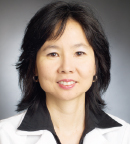Taking aspirin daily does not prevent breast cancer recurrence, according to research presented by Wendy Y. Chen, MD, MPH, a medical oncologist at Dana-Farber Cancer Institute, during the February 2022 ASCO Plenary Series session (Abstract 360922). Results of a double-blind phase III study of more than 3,000 patients with high-risk, HER2-negative breast cancer showed no improvement in invasive disease–free survival among those randomly assigned to receive aspirin vs placebo daily for 5 years. After a median follow-up of 20 months, the study was closed early because data showed it was unlikely that aspirin would be helpful in preventing breast cancer recurrence, authors of the study reported.

Wendy Y. Chen, MD, MPH
“Although inflammation may still play a role in cancer progression, aspirin is not recommended for prevention of breast cancer recurrence,” said lead author Dr. Chen. “Aspirin may have different effects in other cancers, such as colon [cancer], or in different settings, such as primary vs secondary prevention.”
Study Background
According to Dr. Chen, a strong rationale supported the randomized study of aspirin as adjuvant therapy for breast cancer. Both in vitro and animal data have shown that aspirin and nonsteroidal anti-inflammatories can decrease breast cancer growth and invasiveness, and multiple epidemiologic studies of breast cancer survivors reported improved breast cancer survival among regular aspirin users. Previous observational studies and cardiovascular disease trials have also suggested that regular aspirin users had a decreased risk of metastatic cancer of any kind.
ABC Trial
The Aspirin After Breast Cancer (ABC) Trial was the first randomized, placebo-controlled trial to evaluate the efficacy of aspirin in preventing breast cancer recurrence among breast cancer survivors. The study was also designed to assess toxicity in adherence.
Subjects enrolled were younger than age 70, because the adverse effects of aspirin are strongly age-related and increase in people over age 70, said Dr. Chen. In addition, all tumors had to be HER2-negative to ensure a high-risk population.
Patients were randomly assigned to receive 300 mg of aspirin daily for 5 years or placebo. The study’s primary endpoint was invasive disease–free survival.
Aspirin Does Not Prevent Breast Cancer Recurrence
Between 2017 and 2020, Dr. Chen and colleagues enrolled 3,021 patients with high-risk, HER2-negative breast cancer. Median follow-up was 24 months, and the median time on treatment was 18 months.
With 111 invasive disease–free survival events in the aspirin arm and 90 events in the placebo arm, results of the study showed worse survival for aspirin users (hazard ratio = 1.25, P = .1258).
According to Dr. Chen, compliance was very high in this study and was similar for both the aspirin and placebo groups. Off-protocol use of aspirin and nonsteroidal anti-inflammatory drugs was also low and comparable to other randomized trials, she said.
There was no difference in the frequency of grade 3 and 4 adverse events between the study arms, and there were no grade 4 cardiac, hematologic, or gastrointestinal events in the cohort of patients receiving aspirin. Dose reductions to 100 mg were uncommon in both study arms, and no new significant safety concerns were identified.
“These data showed no benefit of [300 mg of] aspirin daily in terms of breast cancer invasive disease–free survival,” said Dr. Chen. “Although follow-up was short, the futility boundary was clearly crossed, and there was unlikely be any benefit associated with aspirin with further follow-up.”
Dr. Chen and colleagues plan to conduct additional analyses on tumor and blood samples collected from participants at baseline and repeat blood samples that were collected at 2 years.
Disclosure: For full disclosures of the study authors, visit coi.asco.org.

